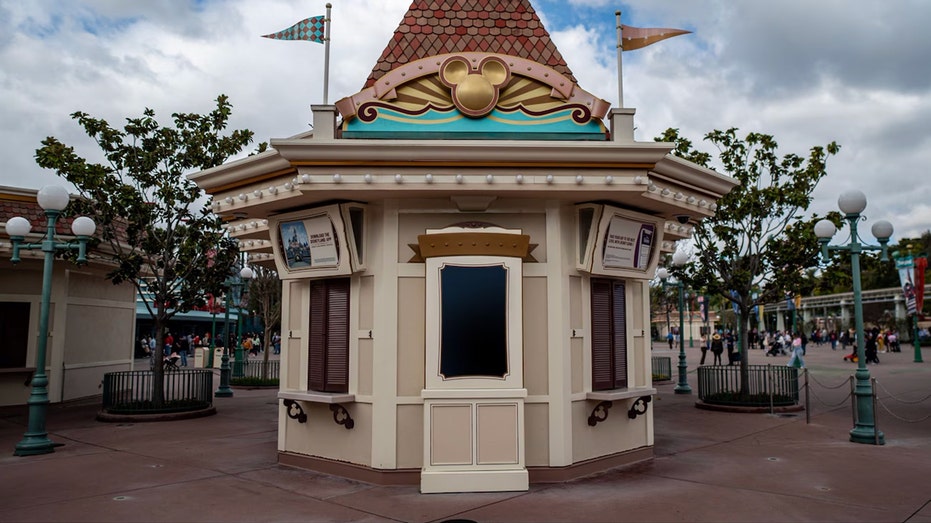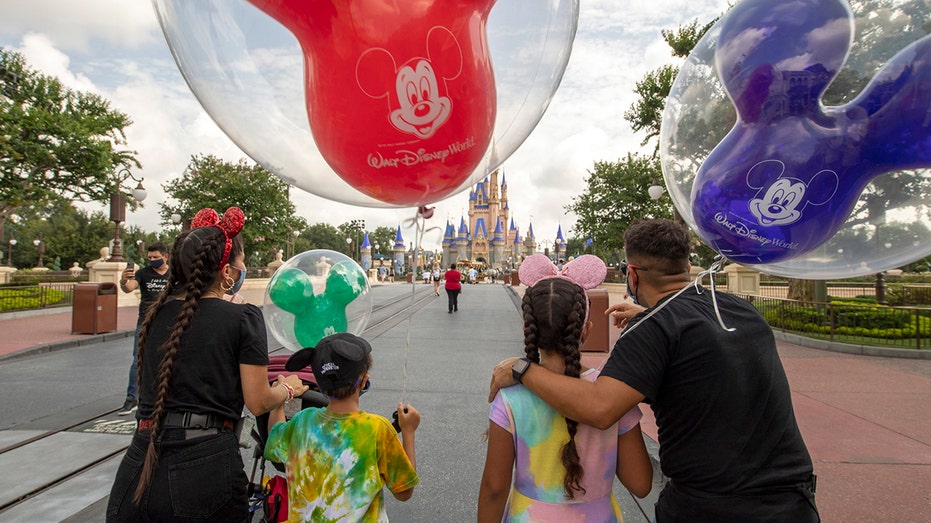It has been three months since Disney announced changes to disability access for guests at its theme parks, and now some disabled guests are demanding action.
The changes went into effect May 20 at Walt Disney World in Florida and June 18 at California’s Disneyland. Disability Access Service (DAS) is a free service that allows those with disabilities to get a return time for attractions rather than wait in a standard line.
It used to be much easier for guests to get DAS accommodation, but now, those who previously enjoyed the greater accessibility are being left out.
“I was recently denied the Disability Access Services here at Disneyland,” Charisma Mangahas, a 25-year-old Disneyland annual passholder diagnosed with Guillain-Barré syndrome in 2018, said in a June 27 TikTok video that has gotten more than 1.7 million views.
DISNEY PARKS WILL ISSUE LIFETIME BANS FOR PEOPLE WHO LIE ABOUT DISABILITIES
While sitting in her wheelchair and her trache connected to a vent, she made the recommendation that Disney allow disabled guests who do not qualify for the DAS program to be able to purchase an annual Lightning Lane that will allow them to skip standby lines.
Mangahas told FOX Business she had used the DAS pass before, “but now with the policy changes, all I’ve experienced with DAS is stress.”
“DAS is intended to accommodate only those Guests who, due to a developmental disability like autism or similar disorder, are unable to wait in a conventional queue for an extended period of time,” the websites for both parks state.
Previously, DAS was indicated as for “guests who have difficulty tolerating extended waits in a conventional queue environment due to a disability.”
In addition to the specification for those who qualify for DAS, Disney also changed the procedure for requesting the service.
Currently at Walt Disney World, all DAS registrations must occur via virtual video chat as soon as 30 days in advance of a park visit.
At Disneyland, guests applying for DAS can either use a virtual chat or a dedicated “accessibility services” window for same-day requests.
Mangahas says the day she recorded the TikTok video, she had waited on the phone for nearly three hours for the online process before she asked her sister to drive her to the park to do the required interview in person. She said she waited at the accessibility services booth for an hour before talking to a cast member prior to a “third party interviewer.”
She said a Disney cast member told her she was not denied the DAS but was provided with other accommodations, and it was up to her to take it. She said she was told she could purchase Genie+ services if she would like – a service that “offers even more convenience and flexibility, starting at $30.00 USD per ticket per day,” the Disneyland website states.
| Ticker | Security | Last | Change | Change % |
|---|---|---|---|---|
| DIS | THE WALT DISNEY CO. | 97.99 | -0.62 | -0.63% |
DISNEY ANNOUNCES CHANGES TO DISABILITY ACCESS FOR GUESTS AT ITS THEME PARKS

Mangahas is not the only disgruntled parkgoer.
“I have lupus, pots & ptsd,” a TikToker wrote in response to Mangahas’ video. “Due to fainting spells, long waits are hard for me. I’ve been denied just because I don’t look sick. I can’t believe they aren’t helping people who are clearly disabled.”
“My mom who has stage 4 cancer and is unable to wait in lines was denied too (even though she got DAS before),” another wrote on TikTok.

An online petition shows nearly 24,000 people are asking for disabled people to stop being excluded from the California and Florida parks with the new policy.
Disney did not immediately respond to a FOX Business request for comment.
The company announced back in April that guests found to have made false statements in order to obtain Disability Access Services will be permanently banned from its parks.
Mangahas said the support since she posted on TikTok is “amazing” and she has made a couple of new friends.
“It’s the most ambitious thing I’ve done,” she said.
FOX Business’ Christine Rousselle and Timothy Nerozzi contributed to this report.
Read the full article here











